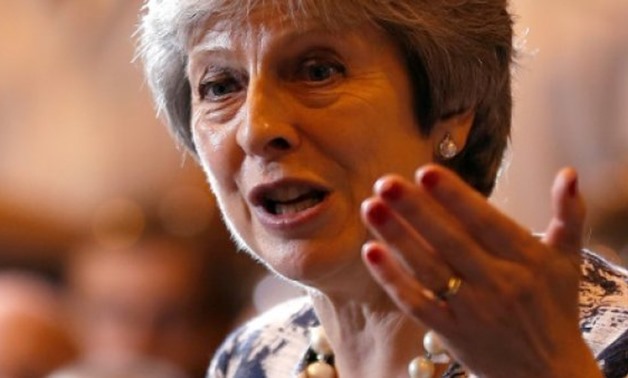
© POOL/AFP | British Prime Minister Theresa May has launched a charm offensive to win over individual EU member states to support her Brexit
LONDON - 1 August 2018: Britain has stepped up warnings of the risk that the Brexit talks collapse as it seeks to bypass Brussels and persuade individual European Union nations to back its plans for future economic ties.
Foreign Minister Jeremy Hunt visited Vienna on Wednesday, after talks in Paris the day before, and warned "there is a real risk of a messy divorce, which would be a geostrategic mistake".
His trip was part of a wider European diplomatic offensive by Britain, which will see Prime Minister Theresa May meet French President Emmanuel Macron at his Mediterranean retreat on Friday.
She will seek to sell her proposal for close economic ties with the EU after Brexit, a half-in, half-out plan that has enraged her own eurosceptics but which she insists is the only practical way forward.
The European Commission's chief negotiator, Michel Barnier, has expressed scepticism and last week rejected a key element of the proposal relating to tariffs on the Irish border.
But London is seeking to emphasise directly to European capitals the need for greater flexibility, warning that all sides would suffer if Britain leaves the EU next March without an agreement in place.
"The probability of no deal is increasing by the day until we see a change of approach from the European Commission," Hunt told London's Evening Standard newspaper in an interview published Tuesday.
He added: "France and Germany have to send a strong signal to the Commission that we need to negotiate a pragmatic and sensible outcome that protects jobs on both sides of the Channel."
"For every job lost in the UK, there will be jobs lost in Europe as well if Brexit goes wrong," Hunt said.
- France and EU 'cohesion' -
Two of May's pro-Brexit ministers, including Hunt's predecessor Boris Johnson, resigned over her Brexit plan last month saying it would undermine the opportunities of leaving the EU.
But May is pressing ahead, discussing it with German Chancellor Angela Merkel last month, and holding talks last week with the Austrian and Czech leaders.
On Friday, May will have a meeting and private dinner with Macron at the French presidential retreat at Bregancon, the first foreign leader to be invited there.
A government source told the Times that France was "holding fire" on May's Brexit plan.
"So we're making the case to them. It looks like the jury's still out on them, so that's why she's going," the source said.
It follows a visit to Paris by her Brexit minister Dominic Raab on Thursday, and another last week by her business secretary Greg Clark, who also visited Italy and Portugal.
France is seen as taking a particularly hard line in the Brexit negotiations, especially on financial services, where it has openly sought to poach businesses from the City of London.
Some British officials also believe France is opposing continued British involvement in the EU's Galileo satellite programme because of the potential benefits to its own aerospace sector.
However, Austrian Foreign Minister Karin Kneissl warned after talks with Hunt on Wednesday against attempts to divide the bloc, saying there was a "high degree of cohesion" in the EU on how to proceed.
Kneissl, whose country currently holds the rotating EU's presidency, added that it was "very clear" that the European Commission was leading the talks.
Barnier himself said last week that there was not a "sliver of difference" between him and the 27 EU leaders in the negotiations.
- Brexit worries -
As the government goes on the charm offensive abroad, concerns are growing in Britain itself about the practical impact of leaving the EU without a deal.
Downing Street was forced to deny on Monday that it had plans for the military to step in, but ministers have confirmed plans to stockpile food and medicines.
The impact of Britain's decision to leave the EU is already being felt -- official figures released Tuesday reveal Britain was the only G7 nation to experience a slowdown in 2017.
Meanwhile Freedom of Information requests from around 30 local authorities, lodged by Sky News, revealed their concerns about Brexit, ranging from a fall in agricultural land prices to a lack of Europeans working in the care sector.


Comments
Leave a Comment